Salesforce Administrators are the backbone of any organization’s Salesforce environment. They ensure that the system runs smoothly, manage user accounts, and customize the platform to meet business needs.
Skills for a Salesforce Administrator include a deep understanding of the Salesforce platform, data management, and strong analytical abilities. Additionally, they need to be adept at problem-solving and have excellent communication skills.
Candidates can write these abilities in their resumes, but you can’t verify them without on-the-job Salesforce Administrator skill tests.
In this post, we will explore 9 essential Salesforce Administrator skills, 10 secondary skills and how to assess them so you can make informed hiring decisions.
Table of contents
9 fundamental Salesforce Administrator skills and traits
The best skills for Salesforce Administrators include Salesforce Configuration, Data Management, Security Settings, Workflow Automation, Report and Dashboard Creation, User Training, Troubleshooting, AppExchange Management and Change Management.
Let’s dive into the details by examining the 9 essential skills of a Salesforce Administrator.
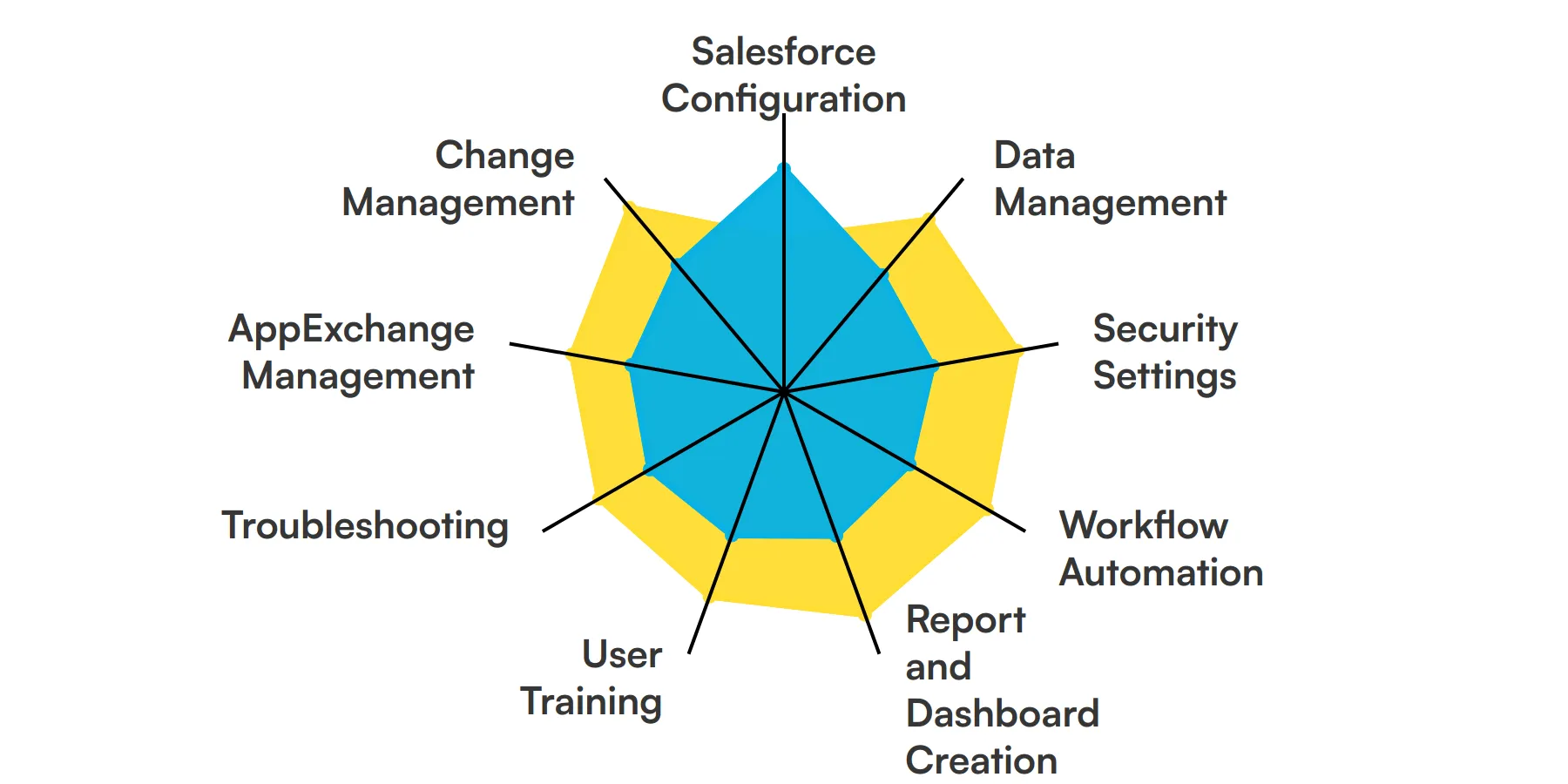
Salesforce Configuration
A Salesforce Administrator must be adept at configuring Salesforce to meet the specific needs of their organization. This includes setting up user roles, permissions, and creating custom objects and fields. Proper configuration ensures that the platform is tailored to support business processes effectively.
For more insights, check out our guide to writing a Salesforce Administrator Job Description.
Data Management
Handling data within Salesforce is a critical skill. Administrators need to import, export, update, and delete data while maintaining data integrity. Effective data management ensures that the information within Salesforce is accurate and up-to-date, which is crucial for decision-making.
Security Settings
Ensuring the security of data and user access is paramount. Salesforce Administrators must configure security settings, including profiles, roles, and sharing rules, to protect sensitive information. Proper security settings help prevent unauthorized access and data breaches.
Check out our guide for a comprehensive list of interview questions.
Workflow Automation
Automating repetitive tasks through workflows and process builders can save time and reduce errors. Salesforce Administrators use these tools to create automated processes that streamline business operations, ensuring tasks are completed efficiently and consistently.
Report and Dashboard Creation
Creating insightful reports and dashboards is essential for data-driven decision-making. Salesforce Administrators must be skilled in building custom reports and dashboards that provide valuable insights into business performance and help stakeholders make informed decisions.
User Training
Training users on how to effectively use Salesforce is a key responsibility. Administrators need to create training materials and conduct sessions to ensure users are comfortable with the platform. Proper training helps maximize the adoption and utilization of Salesforce.
Troubleshooting
Identifying and resolving issues within Salesforce is a daily task for administrators. This involves diagnosing problems, finding solutions, and implementing fixes to ensure the platform runs smoothly. Effective troubleshooting minimizes downtime and keeps business operations running seamlessly.
AppExchange Management
Salesforce Administrators often need to manage third-party applications from the AppExchange. This includes evaluating, installing, and maintaining these apps to extend Salesforce's functionality. Proper AppExchange management ensures that the organization leverages the best tools available.
Change Management
Managing changes within Salesforce, such as updates and new feature implementations, is crucial. Administrators must plan, test, and deploy changes carefully to avoid disruptions. Effective change management ensures that updates enhance the system without causing issues.
10 secondary Salesforce Administrator skills and traits
The best skills for Salesforce Administrators include Basic Coding, Integration Knowledge, Project Management, Business Analysis, Communication Skills, Time Management, Documentation, Customer Service, Analytical Thinking and Adaptability.
Let’s dive into the details by examining the 10 secondary skills of a Salesforce Administrator.
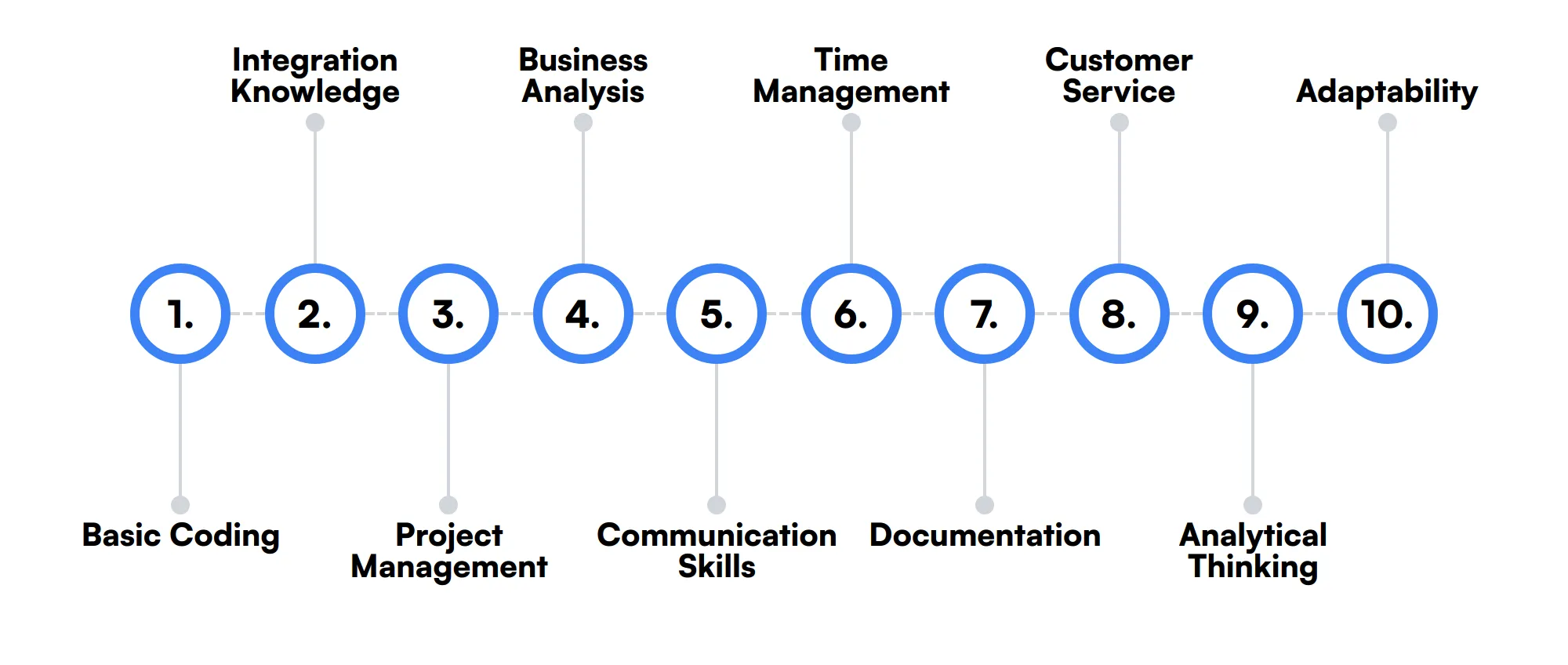
Basic Coding
While not always required, having a basic understanding of Apex and Visualforce can be beneficial. This knowledge allows administrators to make minor customizations and understand the work of developers better.
Integration Knowledge
Understanding how to integrate Salesforce with other systems can enhance its functionality. Administrators should be familiar with APIs and middleware tools to ensure seamless data flow between platforms.
Project Management
Managing Salesforce projects, such as new implementations or major updates, requires project management skills. This includes planning, coordinating, and executing projects to ensure they are completed on time and within scope.
Business Analysis
Analyzing business processes and requirements helps administrators tailor Salesforce to meet organizational needs. This involves gathering requirements, mapping processes, and identifying areas for improvement.
Communication Skills
Effective communication is key for a Salesforce Administrator. They need to interact with stakeholders, gather requirements, and provide updates. Clear communication ensures that everyone is on the same page and that the platform meets business needs.
Time Management
Balancing multiple tasks and projects is a common challenge. Good time management skills help administrators prioritize their workload and ensure that critical tasks are completed on time.
Documentation
Maintaining detailed documentation of configurations, processes, and changes is important. This helps in troubleshooting, training new users, and ensuring continuity in case of personnel changes.
Customer Service
Providing support to users and addressing their issues promptly is a key part of the role. Good customer service skills ensure that users have a positive experience and that their problems are resolved efficiently.
Analytical Thinking
Analyzing data and system performance helps administrators identify trends and areas for improvement. Analytical thinking enables them to make data-driven decisions that enhance the platform's effectiveness.
Adaptability
The Salesforce ecosystem is constantly evolving. Administrators need to stay updated with new features and best practices, adapting quickly to changes to ensure the platform remains effective.
How to assess Salesforce Administrator skills and traits
Assessing the skills and traits of a Salesforce Administrator can be a challenging task, given the diverse range of responsibilities they handle. From Salesforce Configuration and Data Management to Security Settings and Workflow Automation, a proficient Salesforce Administrator must be adept in various areas to ensure the smooth functioning of your Salesforce environment.
Traditional resumes and certifications might give you a glimpse of a candidate's background, but they often fall short in revealing their true capabilities and fit for your specific needs. Skills-based assessments are a reliable way to evaluate a candidate's practical knowledge and problem-solving abilities.
For a comprehensive evaluation, consider using Adaface assessments, which can help you achieve 2x improved quality of hires and an 85% reduction in screening time. These assessments are designed to test a candidate's proficiency in key areas such as Report and Dashboard Creation, User Training, Troubleshooting, AppExchange Management, and Change Management, ensuring you find the right fit for your team.
Let’s look at how to assess Salesforce Administrator skills with these 6 talent assessments.
Salesforce Administrator Test
Our Salesforce Administrator Test evaluates a candidate's proficiency in managing and customizing the Salesforce platform to meet business requirements.
The test assesses their understanding of data management, security and access, automation, customization, and user experience optimization.
Successful candidates demonstrate a strong ability to handle workflow automation, reports, dashboards, and security management effectively.
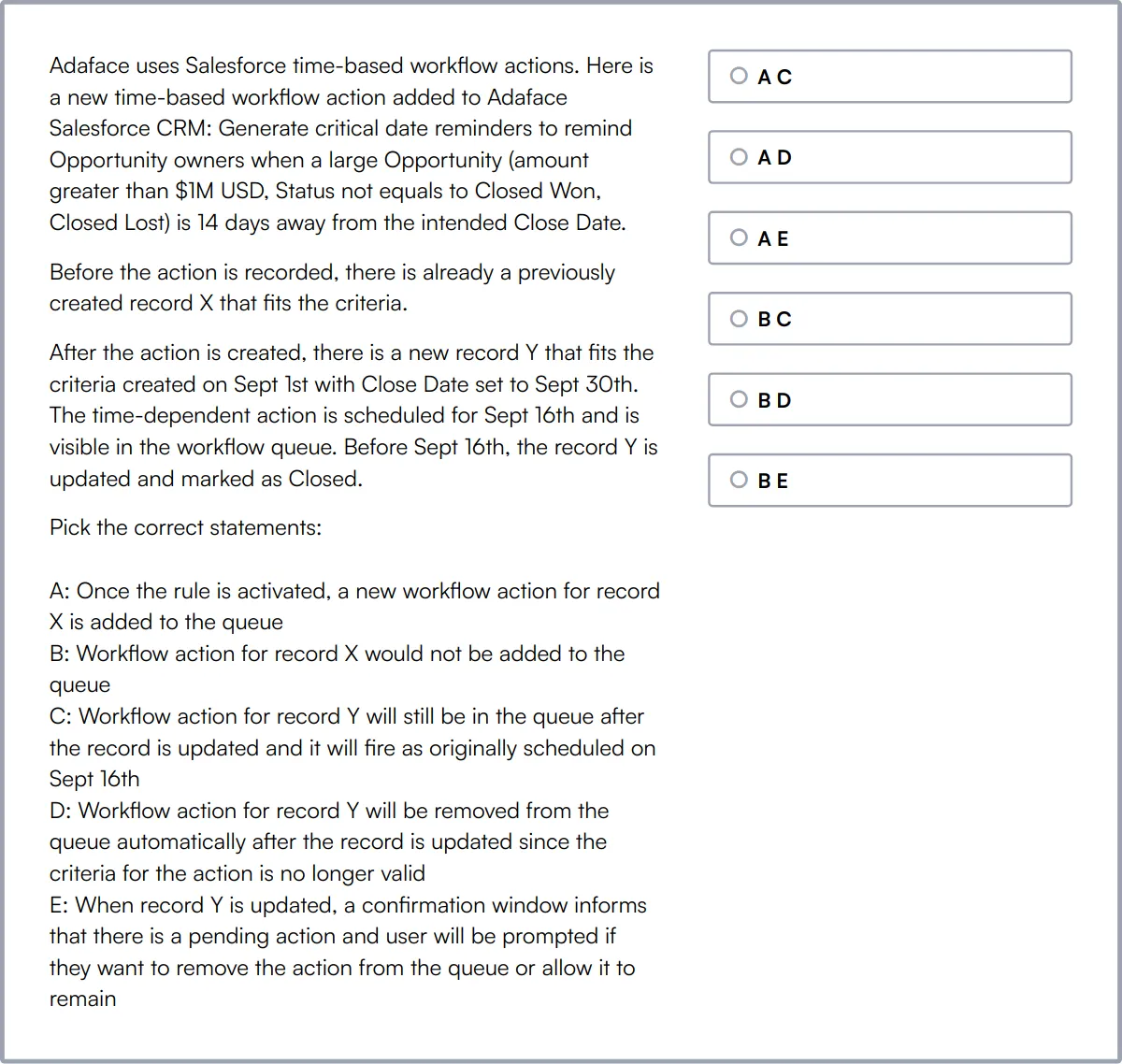
CISCO Data Center Online Test
The CISCO Data Center Online Test measures a candidate's expertise in managing and troubleshooting data center operations.
This test covers data center networking, Cisco UCS, storage solutions, and security, emphasizing practical knowledge and problem-solving skills.
Candidates who perform well on this test are proficient in virtualization techniques and network architecture, ensuring efficient data center management.
CISCO Security Online Test
Our CISCO Security Online Test assesses a candidate's ability to design and implement secure network architectures using Cisco products.
The test evaluates knowledge of network security concepts, CISCO security solutions, and the ability to manage CISCO security appliances.
High-scoring candidates will have a thorough understanding of network threats and vulnerabilities, as well as expertise in CISCO IPS/IDS and VPN technologies.
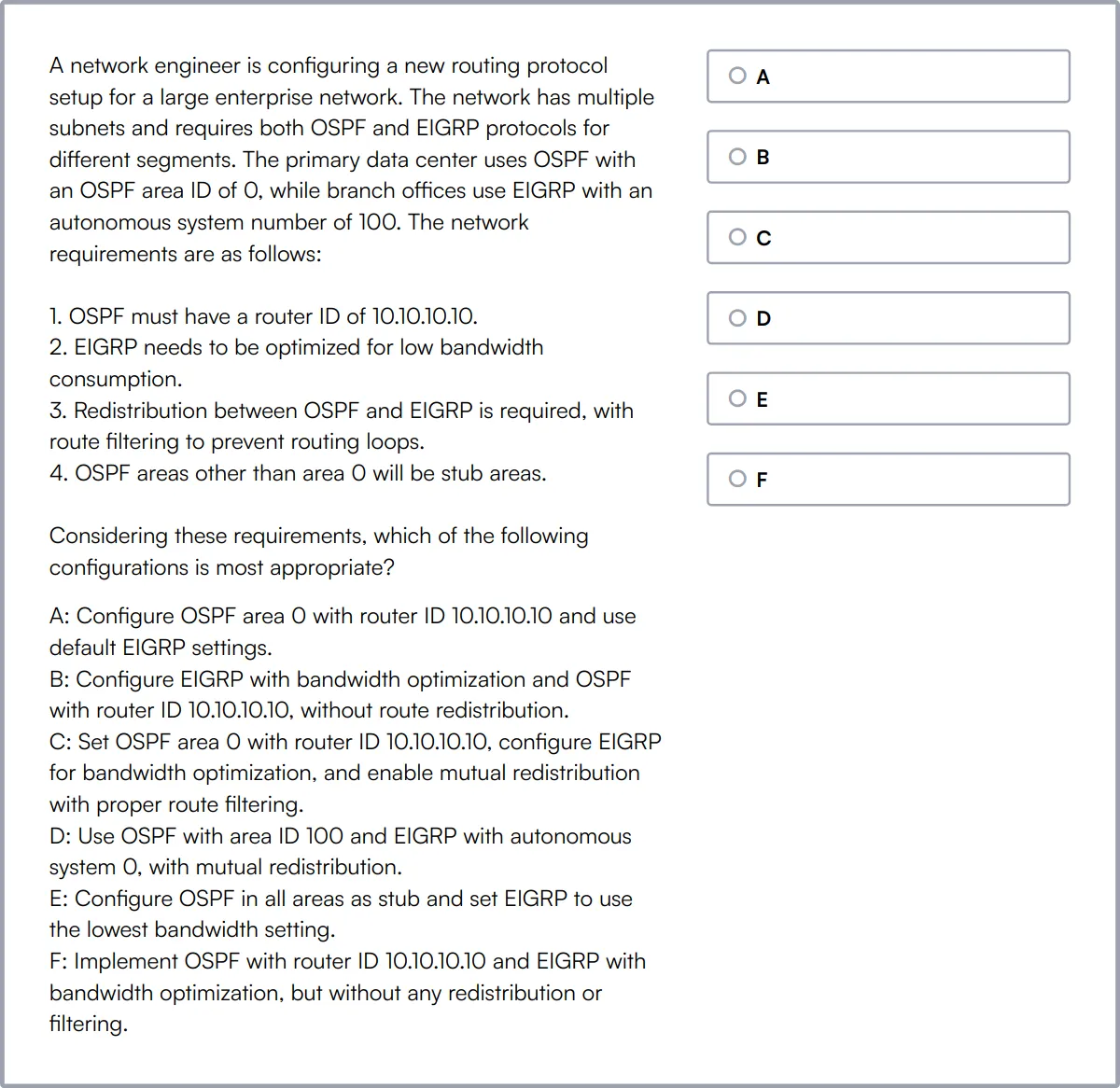
Customer Service Test
The Customer Service Test evaluates how well candidates can handle real-life customer service scenarios.
It tests for skills in communication, problem-solving, empathy, and conflict resolution, focusing on customer-centric solutions.
Candidates excelling in this test demonstrate strong capabilities in negotiation and time management, crucial for effective customer service.
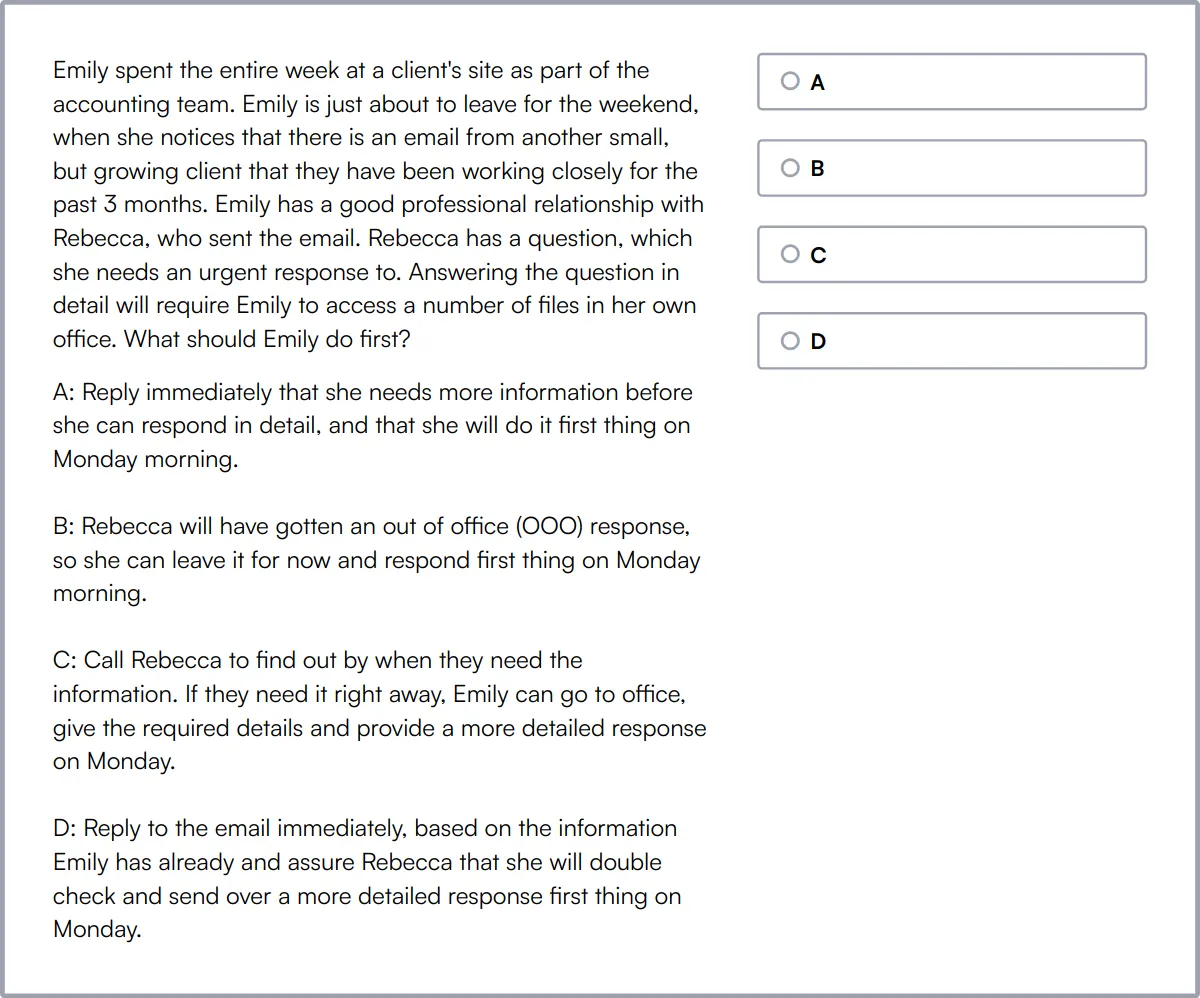
Technical Support Test
Our Technical Support Test is designed to assess a candidate's technical knowledge and customer service skills in IT support.
The test includes questions on operating systems, networking concepts, and IT service protocols, with a focus on troubleshooting and problem-solving.
Successful candidates will show proficiency in managing user accounts and permissions, as well as an understanding of cybersecurity principles.
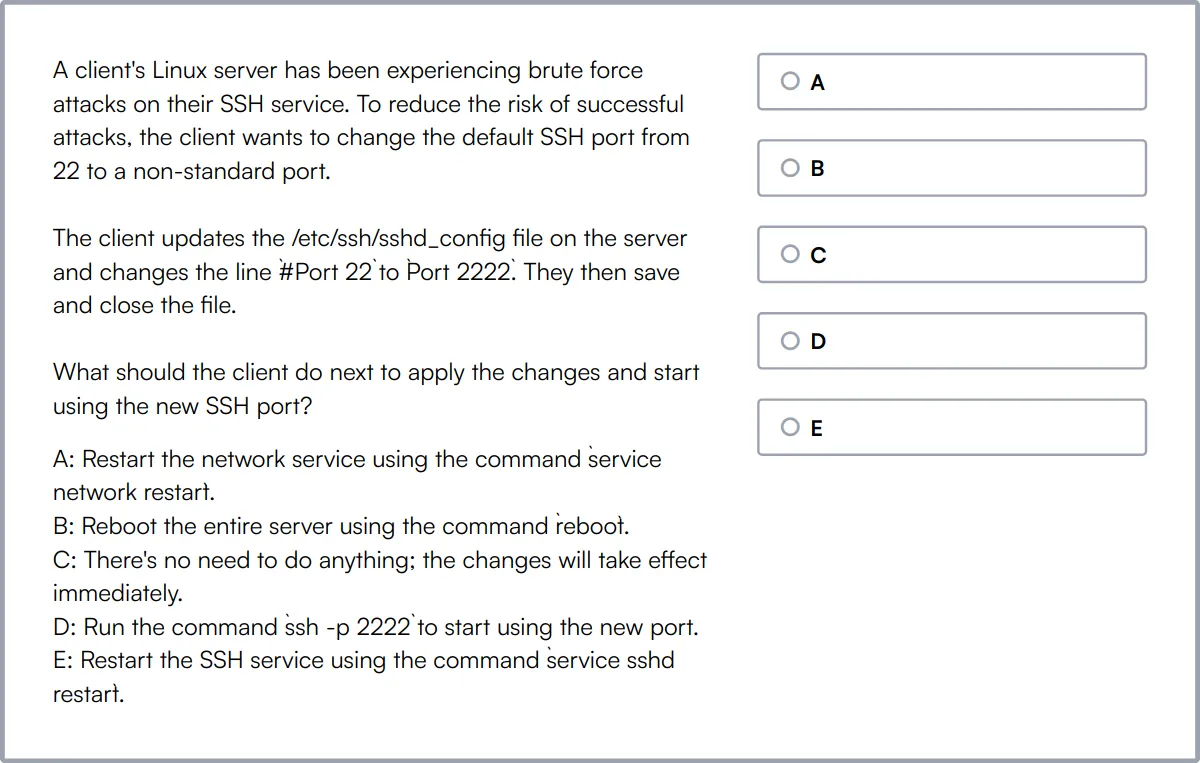
Project Management Test
The Project Management Test assesses a candidate's ability to manage projects from conception to implementation.
This test evaluates skills in cost estimation, resource management, stakeholder management, and risk analysis, focusing on both agile and traditional project management methodologies.
Candidates who score well are adept at designing project plans and handling changes efficiently, ensuring successful project delivery.
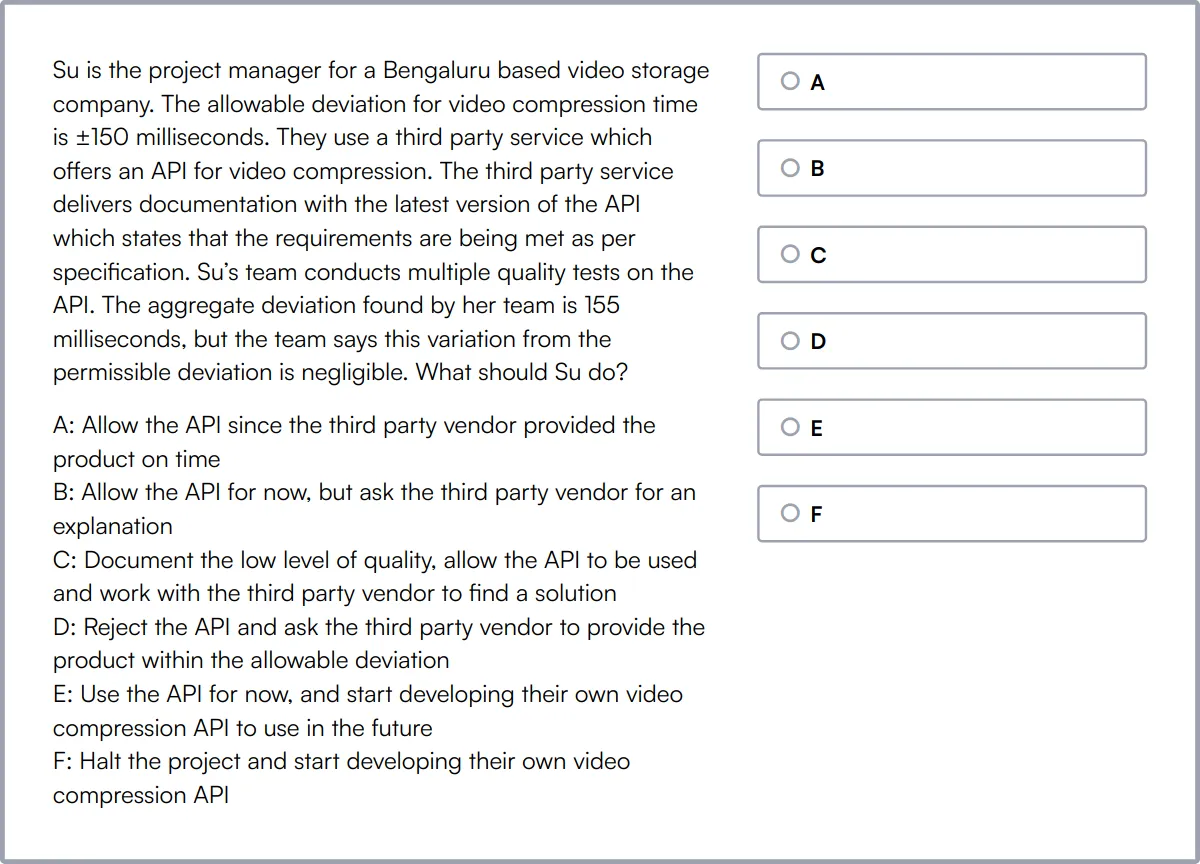
Summary: The 9 key Salesforce Administrator skills and how to test for them
| Salesforce Administrator skill | How to assess them |
|---|---|
| 1. Salesforce Configuration | Evaluate ability to customize and configure Salesforce environments. |
| 2. Data Management | Assess skills in handling and organizing data within Salesforce. |
| 3. Security Settings | Check understanding of user permissions and data security protocols. |
| 4. Workflow Automation | Review proficiency in automating processes and workflows. |
| 5. Report and Dashboard Creation | Determine capability to create insightful reports and dashboards. |
| 6. User Training | Observe effectiveness in training users on Salesforce functionalities. |
| 7. Troubleshooting | Test problem-solving skills in resolving Salesforce issues. |
| 8. AppExchange Management | Assess experience with installing and managing AppExchange apps. |
| 9. Change Management | Evaluate ability to manage and implement Salesforce changes. |
Salesforce Administrator Test
Salesforce Administrator skills FAQs
What are the key skills required for a Salesforce Administrator?
A Salesforce Administrator should be skilled in Salesforce Configuration, Data Management, Security Settings, and Workflow Automation. They should also be proficient in creating Reports and Dashboards, managing User Training, and handling Troubleshooting and AppExchange applications.
How can recruiters assess a candidate's proficiency in Salesforce Configuration?
Recruiters can assess this by asking candidates to describe their experience with setting up and customizing Salesforce environments, including creating custom objects, fields, and page layouts. A practical test or case study can also be effective.
What is the importance of Data Management in the Salesforce Administrator role?
Data Management is critical as it involves ensuring data accuracy and security. Administrators must be adept at importing, exporting, cleaning, and maintaining data. This ensures the system's reliability and effectiveness in decision-making processes.
How should Salesforce Administrators handle Security Settings?
Administrators need to configure and maintain security settings by setting up user roles and permissions, ensuring data privacy and compliance with regulations. They should be able to demonstrate their ability to protect sensitive information within the Salesforce platform.
Can you explain the significance of Workflow Automation for a Salesforce Administrator?
Workflow Automation allows administrators to streamline business processes by automating tasks such as email alerts, field updates, and record creation. This skill is assessed by evaluating the candidate's ability to design and implement efficient workflows that meet business requirements.
What should recruiters look for when assessing a candidate's ability to train users?
Recruiters should look for candidates who can demonstrate their experience in developing and delivering training programs, creating user manuals, and providing support. Effective communication and the ability to simplify complex concepts are key indicators of proficiency in this area.
How do Project Management skills benefit a Salesforce Administrator?
Project Management skills help Salesforce Administrators oversee projects from conception to completion, ensuring they meet deadlines and budgets. Recruiters should check for experience in managing timelines, resources, and stakeholder expectations.
What role does Analytical Thinking play in the success of a Salesforce Administrator?
Analytical Thinking aids administrators in interpreting data, solving problems, and making data-driven decisions. It's important for recruiters to evaluate how candidates use analytical skills to improve system functionality and user experience.
Assess and hire the best Salesforce Administrators with Adaface
Assessing and finding the best Salesforce Administrator is quick and easy when you use talent assessments. You can check out our product tour, sign up for our free plan to see talent assessments in action or view the demo here:

40 min skill tests.
No trick questions.
Accurate shortlisting.
We make it easy for you to find the best candidates in your pipeline with a 40 min skills test.
Try for freeRelated posts
Free resources



